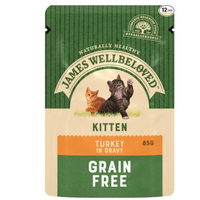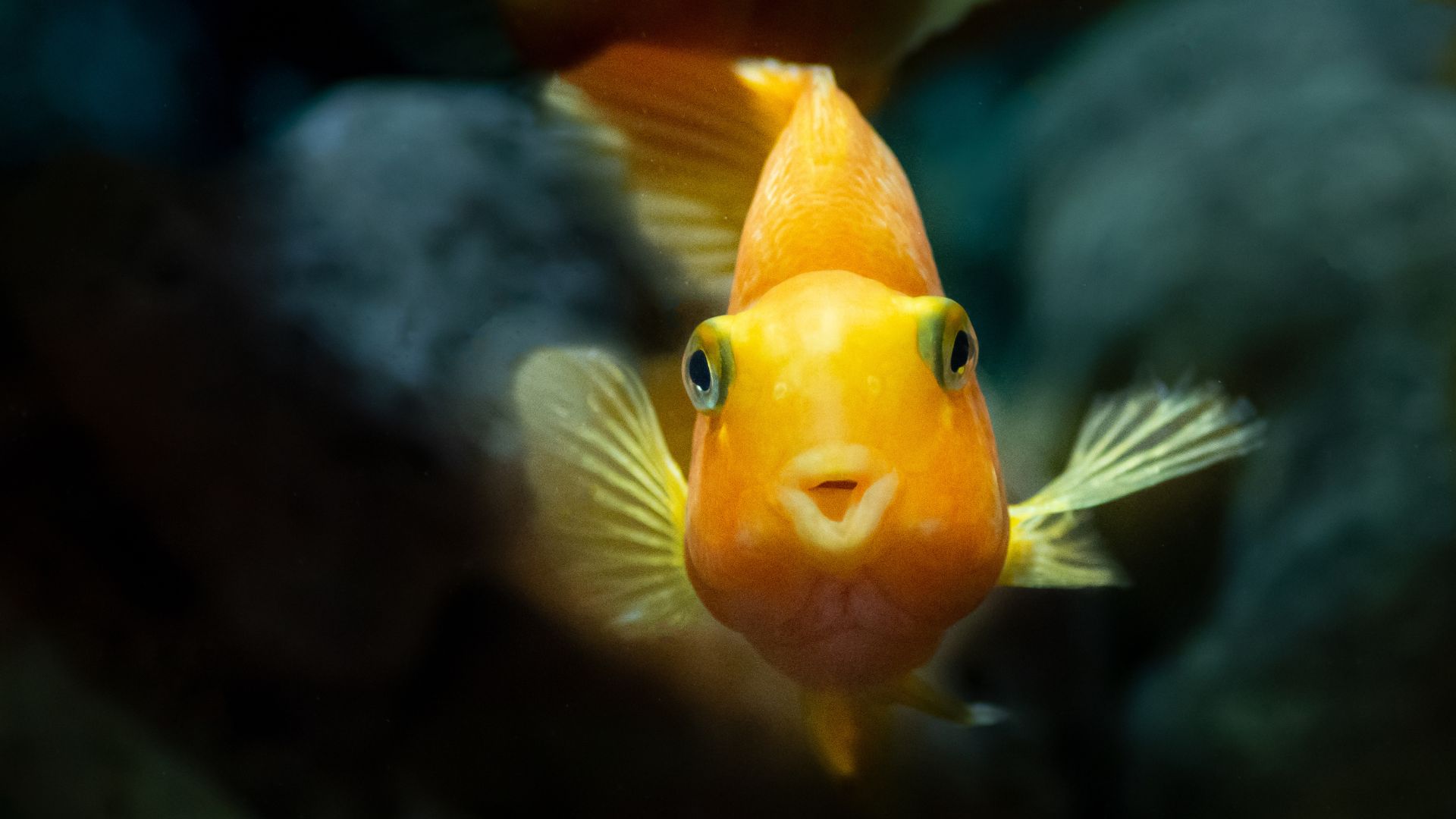Why is my kitten hungry all of the time? 8 reasons for increased appetite, according to a vet
Is your kitten hungry constantly? A vet reveals what may be behind their insatiable appetite and when to seek medical advice
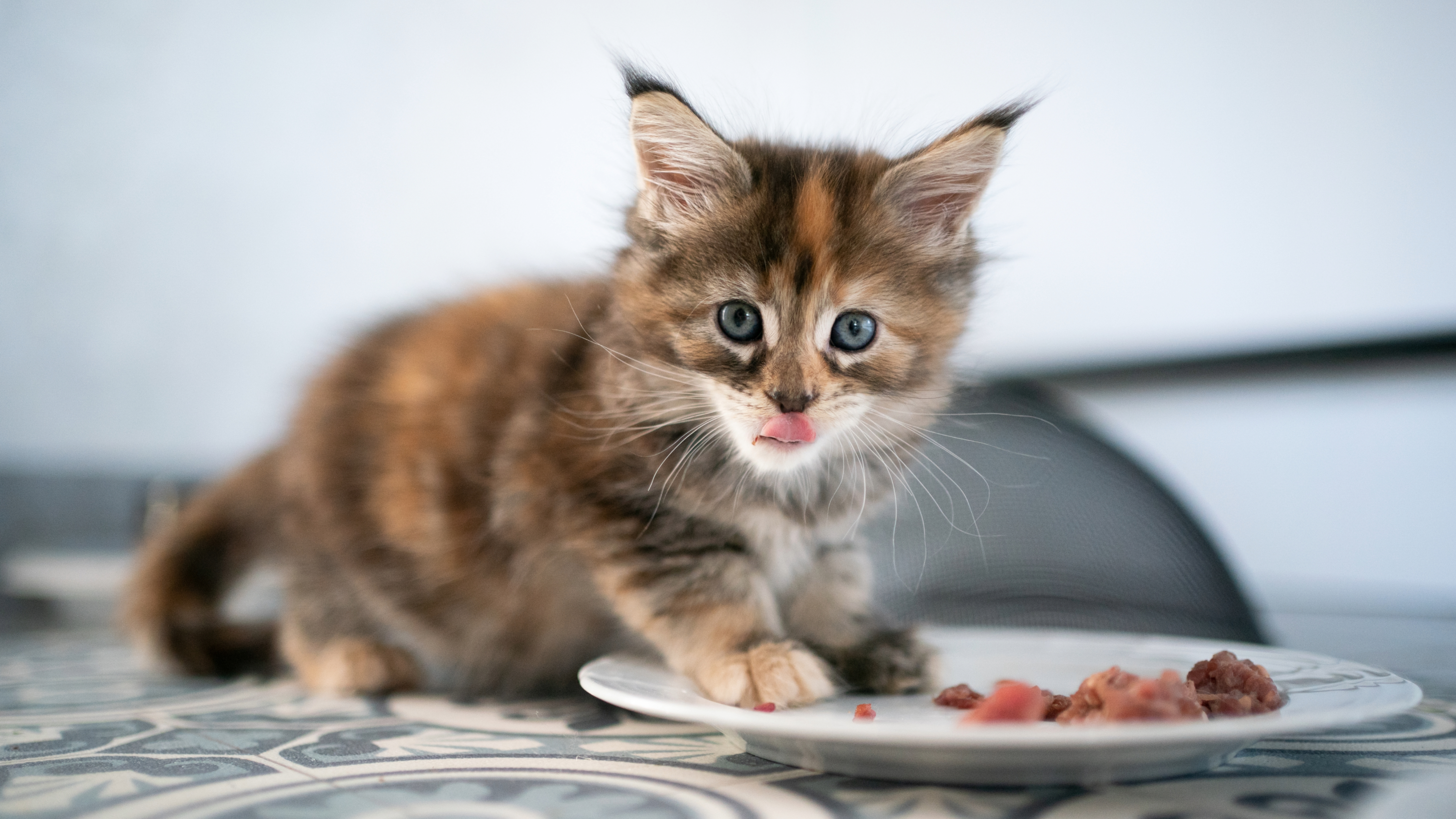
Is your kitten hungry all the time? If so, their voracious appetite may be causing you concern. You may be questioning if you're feeding them enough, whether their frequent trips to their food bowl are normal or feeling worried that an underlying health condition may be driving their desire to eat all the time.
As expert vet Dr. Rebecca MacMillan outlines below, there are lots of reasons your kitten could be hungry. You may be feeding them the best kitten food but perhaps not getting the portion size correct or it could be that you're not feeding them frequently enough.
Just like a kitten not eating enough requires investigation, so too does a kitten who wants to eat constantly. Thankfully, most reasons for an insatiable appetite in kittens are nothing to worry about — although there are a few instances where you'll want to seek the advice of a vet. Read on as Dr. MacMillan explains what these are...
Why is my kitten always hungry?
Alongside the excitement of bringing home a new kitten, you may find yourself with a whole lot of questions – one of which may be why your new bundle of fluff has a seemingly bottomless stomach!
We asked Dr. MacMillan what might cause an increased appetite in kittens, here's what she had to say...
1. They're growing
According to Dr. MacMillan, one of the main reasons that kittens seem hungry is that they are going through a period of rapid growth and development. "Growth requires plenty of energy and protein, so your kitten will need to get this through their diet," she explains.
PetsRadar Newsletter
Get the best advice, tips and top tech for your beloved Pets
2. Highly active
If you haven't already researched ways to kitten proof your home, we highly recommend you do this sooner rather than later because you probably don't need us to tell you that our youngest feline friends of a habit of getting into absolutely everything.
"Kittens are small bundles of energy," Dr. MacMillan confirms, "and they need food to fuel them! Kittens are busy learning about the world through play and exploration making them much more active than many older cats."
3. Faster metabolism than adult cats
Just like with us humans, a cat's metabolism will vary depending on their age and activity levels. "Your kitten has a faster metabolic rate than older cats, meaning they burn off energy more quickly by just the day-to-day running of their body," explains Dr. MacMillan.
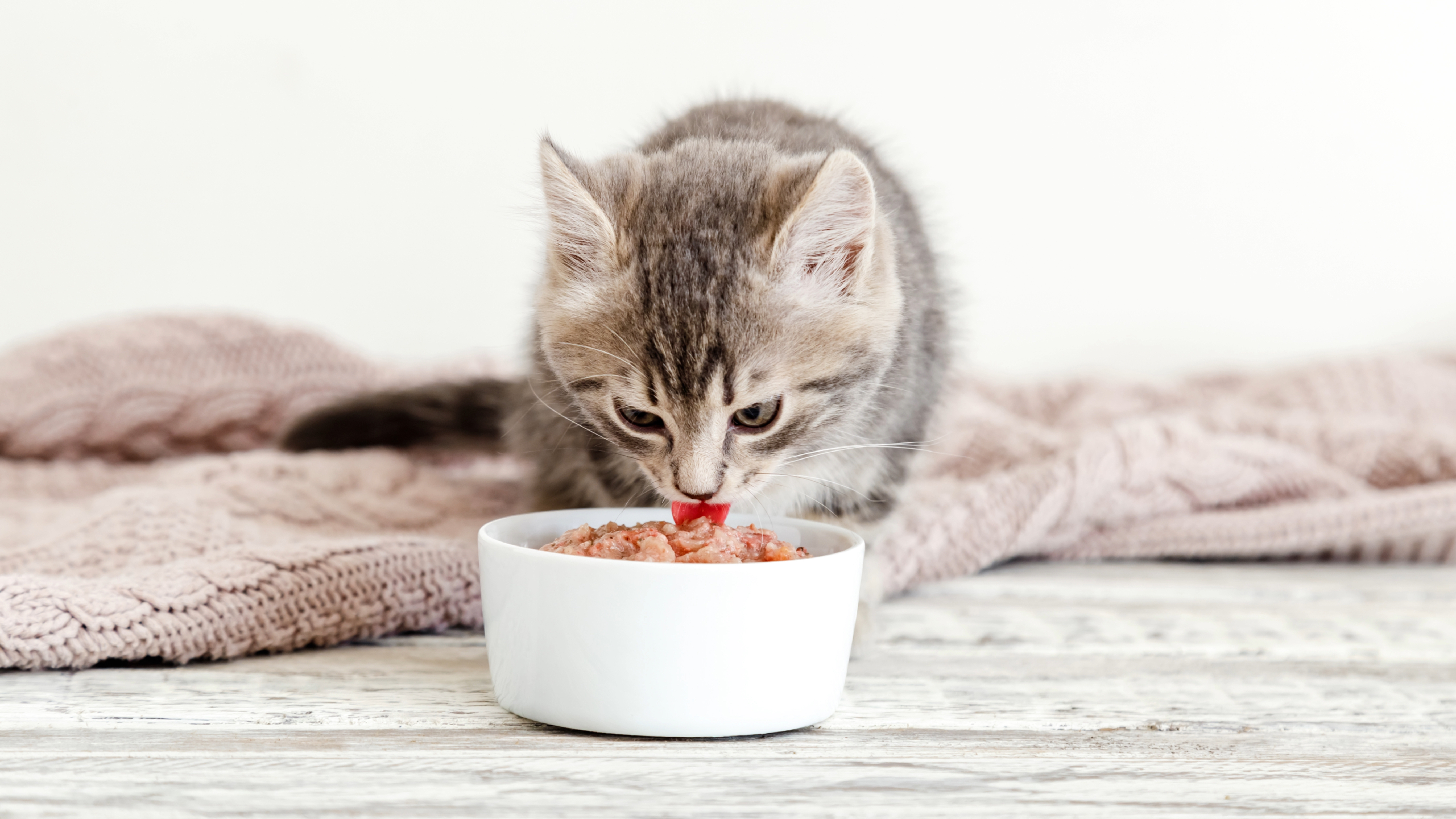
4. Incorrect portion size
How much food should a kitten eat? It may be more than you realize. "Your kitten could seem hungry if they are not receiving enough food," says Dr. MacMillan, adding that "not properly following the feeding guidelines of your chosen diet, or offering food too infrequently to a small kitten, may make them seem ravenous by the next mealtime."
5. Parasites
Something that may not have crossed your mind is intestinal parasites, which could make your kitten extra hungry. "Parasites absorb nutrients from your pet’s digestive system, meaning your kitten receives less," Dr. MacMillan explains. "In severe cases, this could lead to weight loss and other signs like diarrhea and vomiting."
Check out our vet's guide to how to treat a kitten with worms for more information on this.
6. Boredom
Is your cat bored? They may be if they're frequently wanting food. "A bored kitten may turn to food for something to do," says Dr. MacMillan. "But equally, meowing for general attention could also be misinterpreted as hunger by owners, who put down more food to get them to stop crying."
7. A poor quality diet
"If your kitten’s diet is low quality and lacking in nutrients then your kitten could be extra hungry as they try to meet their nutritional needs," explains Dr. MacMillan. "This is more likely to happen in home-cooked diets that haven’t been formulated by a vet. Sticking to a reputable pet food manufacturer and feeding a diet appropriate for your kitten’s age should avoid this."
8. Underlying medical condition
While it's not the most common cause of an increased appetite, Dr. MacMillan says that occasionally a medical condition may be the reason why your kitten is eating excessively.
"If your kitten is showing signs of ill health like vomiting, diarrhea, and weight loss, then there might be something wrong."
Wellness Complete Health Grain-Free Chicken Entrée Wet Kitten Food | Amazon
Recommended by vets, this dish features real chicken and comes packed with DHA for brain and eye development. Highly digestible, it delivers sustained energy and because it's moisture-rich, it's great for supporting daily hydration.
When to see a vet about increased appetite in kittens
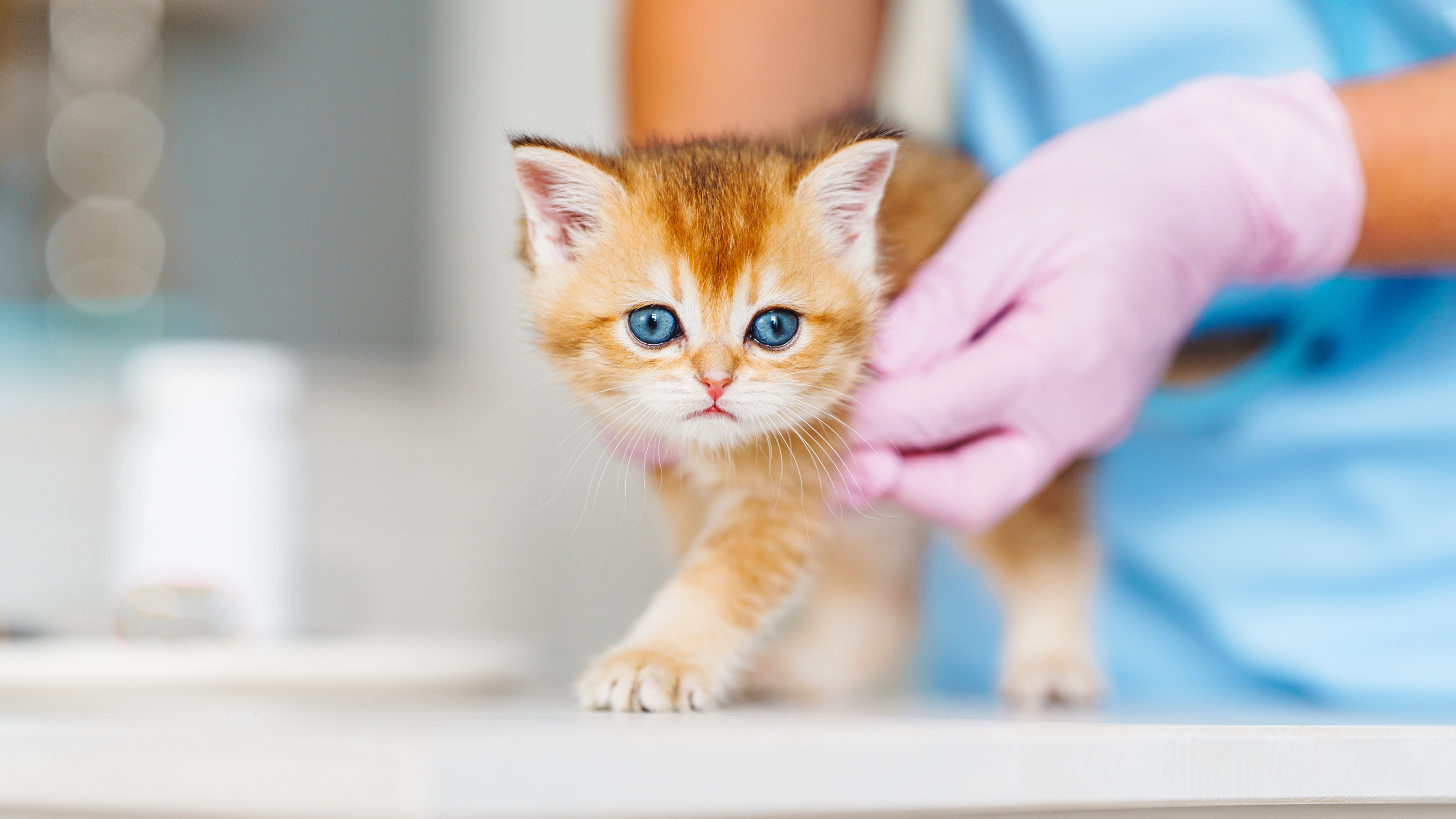
If your kitten seems hungry all the time, you may be wondering if you should seek medical advice. According to Dr. MacMillan, a keen appetite is perfectly normal for most kittens and this will naturally lessen as they mature. "If your kitten is growing at a healthy rate, seems active, and is producing normal stools, then they are probably doing just fine."
However, if your kitten’s increased appetite is accompanied by other symptoms, then Dr. MacMillan suggests seeking veterinary advice. "Look out for changes to their stools such as loose, soft, or liquid feces, as well as any blood or mucus. Vomiting and weight loss, or lack of growth, are also signs that there could be an issue."
If you have any concerns at all then it is always best to get your kitten checked over. "Your vet will be able to weigh your kitten and assess their body condition, as well as advise you on diet and parasite control," Dr. MacMillan explains. "They will be able to assess things like their coat condition, feel your kitten’s abdomen, and check their temperature. If they are suspicious of more significant issues, then they will be able to discuss further investigation with you too."
James Wellbeloved Kitten Grain-Free Turkey in Gravy | Amazon
Featuring real turkey as the first ingredient, this delicious and nutritious meal contains chicory inulin, a natural prebiotic to help support gut flora. Plus, it includes yucca extract, which is believed to help reduce litter box odors.
Should I let my kitten eat as much as they want?
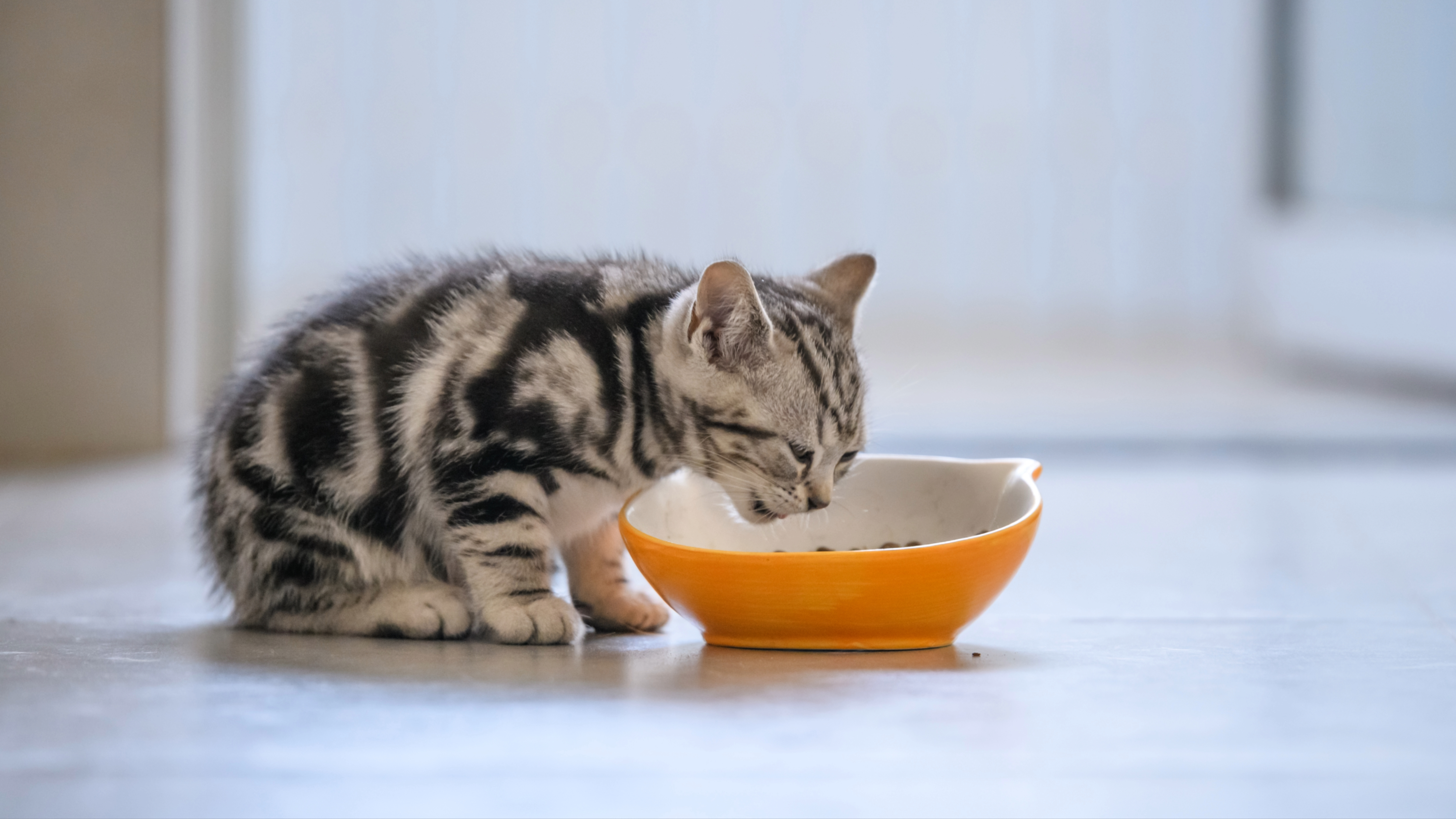
'How often should I feed my kitten?' is a common question amongst pet parents and for good reason. There's a lot of conflicting information out there about free-feeding vs timed feeding, but Dr. MacMillan has some helpful advice when it comes to kittens.
"I never advise cat owners to free-feed their kittens," she says. "While some kittens are good at self-regulating, not all are, and many cats become overweight through having access to as much food as they like. You should always follow the feeding guidelines for your chosen kitten food as products will differ. Weigh the food out accurately with kitchen scales each time, as feeding cups or handfuls can vary wildly.
"Once you have checked how much your kitten should receive in 24 hours, you can then divide that volume of food up accordingly. For very young kittens they will require smaller meals, four or five times per day. For kittens three to six months of age, their daily ration should be divided into three to four meals, spaced evenly throughout the day.
"At six months and older your cat can have two to three meals per day. If your cat is a grazer and nibbles food at random times throughout the day, this is fine, but you should only ever leave down the amount that is recommended for their daily allowance. Don’t just keep topping the food bowl up at ad-lib.
Of course, individuals may vary, and some cats will require a little more than the feeding guidelines suggest and others a little less, depending on activity levels and genetics. This is where regularly weighing your kitten and keeping an eye on their body condition can help to ensure you are on the right track. Speak to your vet if you are unsure about your kitten’s weight or feeding regime."
Read next: How to tell if your kitten is overweight.
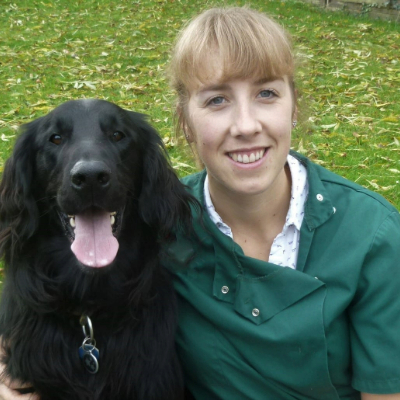
Rebecca is a veterinary surgeon who graduated in 2009 from the Royal Veterinary College in London. She has a wealth of experience in first opinion small animal practice, having done a mixture of day-to-day routine work, on-call emergency duties and managerial roles over the years. She enjoys medicine in particular and she is proud to have recently achieved a BSAVA postgraduate certificate in small animal medicine (with commendation). She writes on various feline and canine topics, including behavior, nutrition, and health. Outside of work and writing she enjoys walking her own dog, spending time with her young family and baking!

Kathryn is a freelance writer who has been a member of the PetsRadar family since it launched in 2020. Highly experienced in her field, she's driven by a desire to provide pet parents with accurate, timely, and informative content that enables them to provide their fur friends with everything they need to thrive. Kathryn works closely with vets and trainers to ensure all articles offer the most up-to-date information across a range of pet-related fields, from insights into health and behavior issues to tips on products and training. When she’s not busy crafting the perfect sentence for her features, buying guides and news pieces, she can be found hanging out with her family (which includes one super sassy cat), drinking copious amounts of Jasmine tea and reading all the books.

